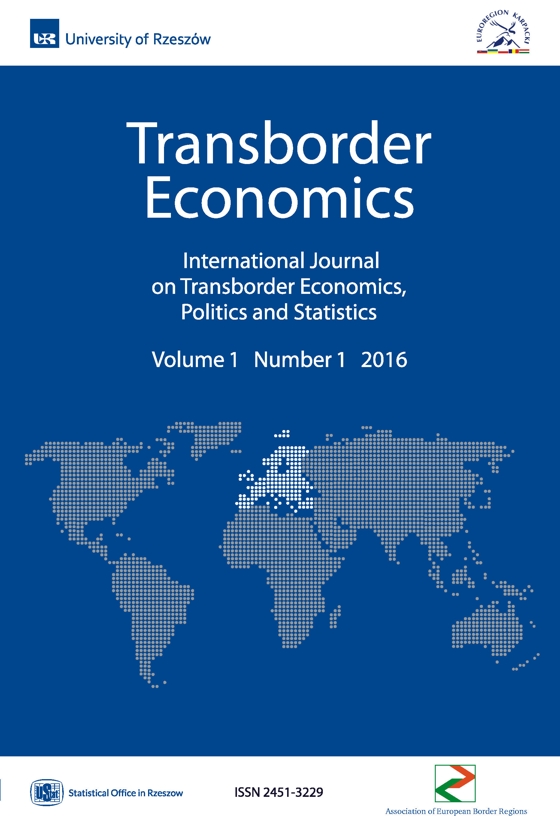Typology of transborder economies and the need of transborder statistics in globalized world
Abstrakt
The concept of transborder economy as special type of socio-economic systems in globalized world is defined. The differences between factors of development of national economies, regional economies and transborder economies are discussed: institutional, political, social, cultural and organizational differences of socio-economic phenomena and processes realized on the territories of different neighbouring national economies. The criteria of identification and delimitation of transborder economies are formulated. On this basis the typology of transborder economies (TE) is proposed. The following types of transborder economies are defined: (a) markets-based TE, (b) infrastructure-driven TE, (c) TE based on institutional complementarity, (d) TE based on common environmental resources, (e) TE based on socio-economic complementarity and substitution.
Basic factors of development of transborder economies are analyzed, with special reference to the differences of potentials as basic stimuli of economic cooperation in transborder regions.
Need of developing integrated information system of statistical information for transborder economies is stressed. Main challenges and difficulties of producing integrated, comparable statistical information describing and monitoring transborder processes and resources are discussed. The cooperation of official statistical agencies operating in transborder areas is the prerequisite of effective economic and social policy and the foundation of activities of businesses in transborder economies. Transborder statistics should be considered as the specific domain of official statistics in globalized economy.
Downloads
Pobrania
Opublikowane
Jak cytować
Numer
Dział
Licencja
Prawa autorskie (c) 2016 TRANSBORDER ECONOMICS. International Journal on Transborder Economics, Finance, Politics and Statistics

Utwór dostępny jest na licencji Creative Commons Uznanie autorstwa – Użycie niekomercyjne – Bez utworów zależnych 4.0 Międzynarodowe.


